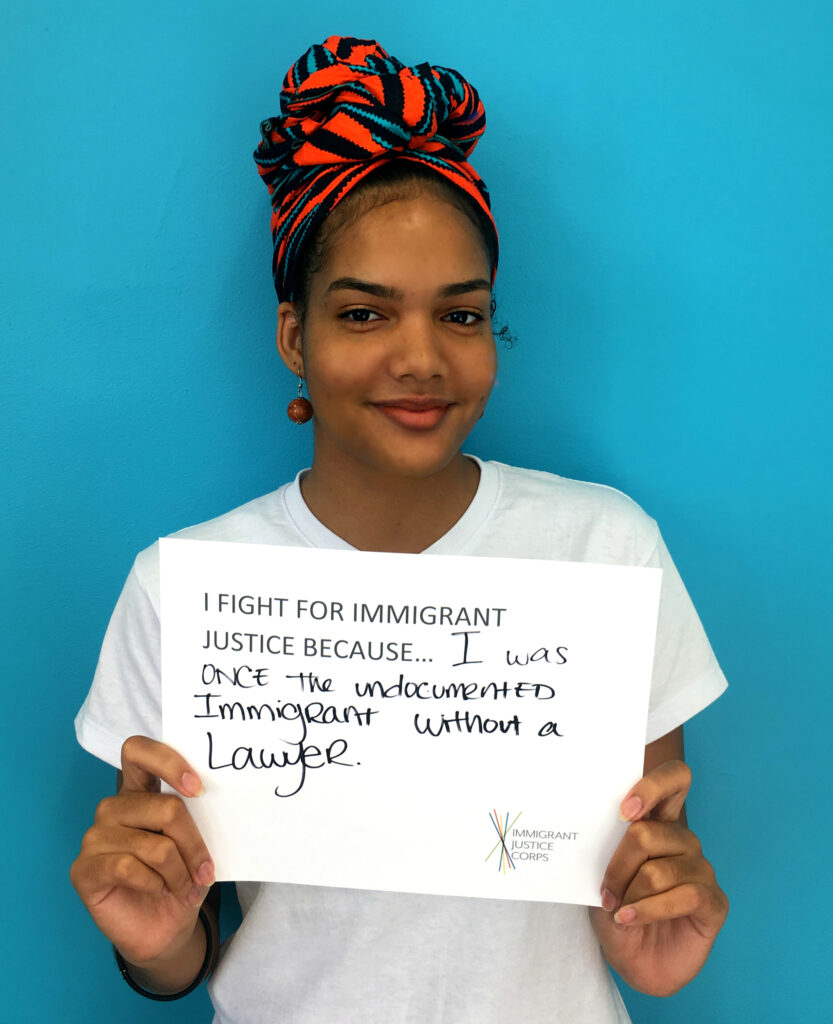Fellow feature: Kay El-moussaoui
Kay El-moussaoui, a 2023 Justice Fellow, shares why she began studying immigration law at 14, what motivates her to serve others and how the average person can support immigrant rights. Kay works at the Michigan Immigrant Rights Center in Detroit.
Why did you become interested in immigration law?
I have always been passionate about immigration law because of a personal experience that impacted my life more than 10 years ago. A family member of mine was deported, and it had a profound effect on me and my family. Witnessing the impact that their removal had on their children shook me to my core and inspired me to learn more about our immigration system.
I began studying immigration law at the young age of 14, and through this journey, I have come to understand that there are two meanings to the term “alien.” While some view immigrants as outsiders who don’t belong in our society, I believe that everyone deserves the opportunity to live and work in the United States, regardless of their background or country of origin. I am committed to helping individuals and families navigate the complex immigration system so they can achieve their dreams and live a better life.
What was something you wish you had known on your first day?
The immigration system is constantly evolving due to various factors such as administrative changes and shifts in political leadership. It’s important to keep in mind that even the most experienced attorneys may not have all the answers and could be continuously learning and adapting to changes in the system. We are all a work in progress.
How do people respond to you when you say you are an immigration attorney?
It really depends on the situation. Sometimes, if I feel uncomfortable or unsure about the political climate, I might just say that I work at a nonprofit organization. But when I do tell people that I am an immigration attorney, the responses can vary. Some are excited and have questions related to their own immigration situation, while others want to discuss how to solve border issues. There are also those who compliment my skills and suggest that I work somewhere more lucrative, but for me, the work I do is fulfilling and meaningful. As a Muslim, I believe that serving others is a way to serve my Creator, and I feel privileged to work with and for the people affected by immigration policies.
What has been the most difficult part of your Fellowship?
I haven’t faced any major difficulties in my job so far. I don’t want to tempt fate, but I am really passionate about my work and feel excited to advocate for my clients every day. It’s crucial to have a career that gives you a sense of fulfillment and meaning, and that’s exactly what my job does for me. Even when I encounter challenges, I view them as opportunities for growth and learning rather than struggles. This work is truly meaningful and has a positive impact on the lives of my clients.
How can the average person work to support immigration rights?
Not providing legal advice. Legal advice can be dangerous if not given accurately. Instead, provide emotional support, translation services, share accurate resources with immigrants, volunteer at nonprofit organizations, support by donating, or become an accredited DOJ representative.
